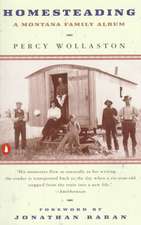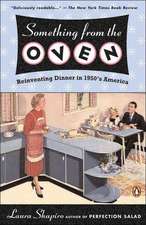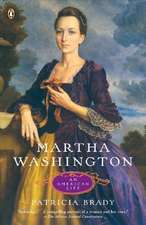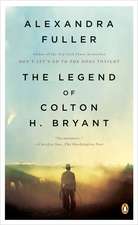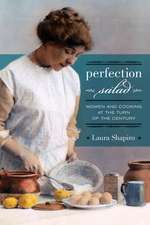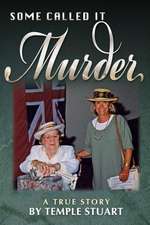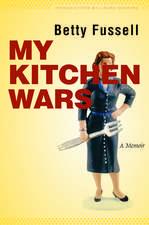Julia Child: A Life
Autor Laura Shapiroen Limba Engleză Paperback – 30 iun 2009 – vârsta de la 18 ani
Vezi toate premiile Carte premiată
IACP Crystal Whisk Award (2008)
With a swooping voice, an irrepressible sense of humor, and a passion for good food, Julia Child ushered in the nation’s culinary renaissance. In Julia Child, award-winning food writer Laura Shapiro tells the story of Child’s unlikely career path, from California party girl to coolheaded chief clerk in a World War II spy station to bewildered amateur cook and finally to the Cordon Bleu in Paris, the school that inspired her calling. A food lover who was quintessentially American, right down to her little-known recipe for classic tuna fish casserole, Shapiro’s Julia Child personifies her own most famous lesson: that learning how to cook means learning how to live.
Preț: 128.43 lei
Nou
Puncte Express: 193
Preț estimativ în valută:
24.58€ • 26.28$ • 20.49£
24.58€ • 26.28$ • 20.49£
Carte disponibilă
Livrare economică 27 martie-10 aprilie
Preluare comenzi: 021 569.72.76
Specificații
ISBN-13: 9780143116448
ISBN-10: 0143116444
Pagini: 185
Dimensiuni: 128 x 183 x 14 mm
Greutate: 0.15 kg
Editura: Penguin Books
ISBN-10: 0143116444
Pagini: 185
Dimensiuni: 128 x 183 x 14 mm
Greutate: 0.15 kg
Editura: Penguin Books
Notă biografică
Award-winning writer Laura Shapiro was at Newsweek for more than fifteen years. The author of Perfection Salad, she has written for many other publications, including The New York Times, Rolling Stone, Granta, and Gourmet.
Extras
Read an ExcerptSoon after Julia and Paul settled in Paris, an old woman told Julia that France was "just one big family." As far as Julia was concerned, that family was hers. At their favorite restaurant, Michaud, she couldn't stop glancing over at a dozen people celebrating around a table spread with "innumerable courses of everything" —champagne, chickens, salads, cheeses, nuts—and everyone relaxed and goodhearted as they talked and ate and drank. "We keep being reminded of the Orient," she wrote home. "Possibly because both are cultivated old civilizations, who enjoy and have integrated the physical and the cultural things in living." Julia was at home here. The French struck her as wonderfully natural and earthy, and at the same time immensely civilized. They seemed to believe that the great pleasures of life—food, drink, sex, civility and conversation, pets, children, the splendor of Paris—were simply part of the fabric of being human, and that to enjoy them was as fundamental as breathing. Yet it was also taken for granted that stewardship of these gifts meant relishing them openly, discussing them, arguing about them, and keeping them meaningful through the very power of appreciation. Here was a whole country dedicated to being "worldly." Right away she started French lessons at Berlitz: nothing was more important to her at this stage than becoming comfortable in the language. She was ecstatically absorbing the city, all her senses wide open and craving more; and she wanted the sounds as well, that constant chatter in the shops and streets; she wanted to "talk and talk and talk" and make a place for herself in the life flowing around her. "Oh, La Vie! I love it more every day."
They found an apartment at 81, rue de l'Université, on the Left Bank of the Seine across from the place de la Concorde, in an old private house. Their rooms on the third floor were as French as the view of rooftops outside the windows. Sagging leather wallpaper, gilt chairs, moldings, and mirrors everywhere—Julia called it "late 19th century Versailles." Up a narrow flight of stairs there was a roomy kitchen with appliances so small in relation to her height that she might have been standing over a toy stove. She decided she could live right there in that apartment forever, in perfect happiness. Already she regretted missing Paris in the twenties, an era Paul had seen in person; and she pounced happily on the occasional sighting of such figures as Colette, Chanel, André Gide, and Sylvia Beach. Once, when the Childs gave a Bastille Day party, Paul invited Alice B. Toklas, whom he had met back in the twenties. She arrived, drank a glass of wine, and left. Toklas was so tiny, and wore such a wide- brimmed hat, that the only way Julia could see her face was to be sitting down while Toklas stood directly above her.
Julia spent her first months studying French, walking through the streets with a map and a dictionary, and tasting, tasting, tasting. Everything she bit into was full of exhilarating flavors: the sausages, the tarts and petits fours, the snails, the Brie, "great big juicy pears," and grapes so sweet she nearly swooned. Like most of their French and American friends in Paris, she and Paul had a maid who cooked and cleaned; but after living that way for a few months, they let her go. They hated having to show up on time for meals, and her cooking disappointed them. Julia was embarrassed to serve guests such inadequate dinners—her own could be alarming at times, but when they came off well, she took a great deal of pride in them. "Besides," she wrote home, "it is heart-rending not to go to the markets, those lovely, intimate, delicious, mouth-watering, friendly, fascinating places. How can one know the guts of the city if one doesn't do one's marketing?" So they hired a cleaning woman to come in twice a week, and Julia gladly took charge of the food. At the market, she examined pigs' heads and scrutinized fruits and vegetables, breathed in the smells of the boulangerie, carefully chose a terrine or pâté from the charcuterie, and chatted away with the shopkeepers. In France, food was a sociable enterprise: everyone had something to say about the turnips or the kidneys, and to be able to join that nationwide conversation—in French! —was Julia's bliss.
They found an apartment at 81, rue de l'Université, on the Left Bank of the Seine across from the place de la Concorde, in an old private house. Their rooms on the third floor were as French as the view of rooftops outside the windows. Sagging leather wallpaper, gilt chairs, moldings, and mirrors everywhere—Julia called it "late 19th century Versailles." Up a narrow flight of stairs there was a roomy kitchen with appliances so small in relation to her height that she might have been standing over a toy stove. She decided she could live right there in that apartment forever, in perfect happiness. Already she regretted missing Paris in the twenties, an era Paul had seen in person; and she pounced happily on the occasional sighting of such figures as Colette, Chanel, André Gide, and Sylvia Beach. Once, when the Childs gave a Bastille Day party, Paul invited Alice B. Toklas, whom he had met back in the twenties. She arrived, drank a glass of wine, and left. Toklas was so tiny, and wore such a wide- brimmed hat, that the only way Julia could see her face was to be sitting down while Toklas stood directly above her.
Julia spent her first months studying French, walking through the streets with a map and a dictionary, and tasting, tasting, tasting. Everything she bit into was full of exhilarating flavors: the sausages, the tarts and petits fours, the snails, the Brie, "great big juicy pears," and grapes so sweet she nearly swooned. Like most of their French and American friends in Paris, she and Paul had a maid who cooked and cleaned; but after living that way for a few months, they let her go. They hated having to show up on time for meals, and her cooking disappointed them. Julia was embarrassed to serve guests such inadequate dinners—her own could be alarming at times, but when they came off well, she took a great deal of pride in them. "Besides," she wrote home, "it is heart-rending not to go to the markets, those lovely, intimate, delicious, mouth-watering, friendly, fascinating places. How can one know the guts of the city if one doesn't do one's marketing?" So they hired a cleaning woman to come in twice a week, and Julia gladly took charge of the food. At the market, she examined pigs' heads and scrutinized fruits and vegetables, breathed in the smells of the boulangerie, carefully chose a terrine or pâté from the charcuterie, and chatted away with the shopkeepers. In France, food was a sociable enterprise: everyone had something to say about the turnips or the kidneys, and to be able to join that nationwide conversation—in French! —was Julia's bliss.
Descriere
Written by the award-winning author of "Perfection Salad," this biography portrays one of the most beloved figures in 20th-century American culture: Julia Child, the buoyant chef who has taught millions of Americans to cook with confidence and eat with pleasure.
Premii
- IACP Crystal Whisk Award Winner, 2008



